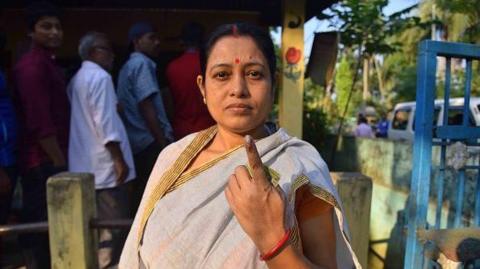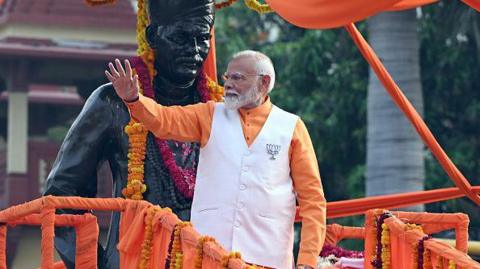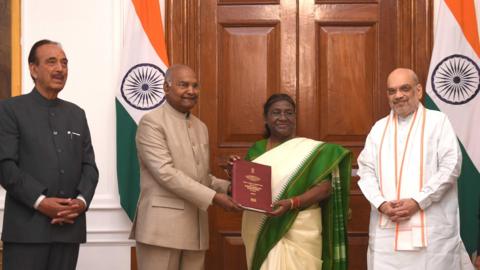India, the world's largest democracy, is almost always in election mode.
With 28 states, eight union territories and nearly a billion eligible voters, polls are a constant feature of the nation's political landscape.
For years, Prime Minister Narendra Modi's Bharatiya Janata Party (BJP) has championed the idea of "One Nation, One Election" - a proposal to hold state and federal elections simultaneously every five years.
On Tuesday, the Indian law minister introduced a bill to implement this system in the parliament sparking a debate over power dynamics.
Supporters argue this approach would slash campaign costs, ease the strain on administrative resources and streamline governance.
Former President Ram Nath Kovind, who led a nine-member committee that recommended holding elections at the same time last year, called it a "game changer", citing economists who say it could boost India's GDP by up to 1.5%.
Critics, however, warn it could erode India's federal structure, concentrating power in the center and weakening states' autonomy.


